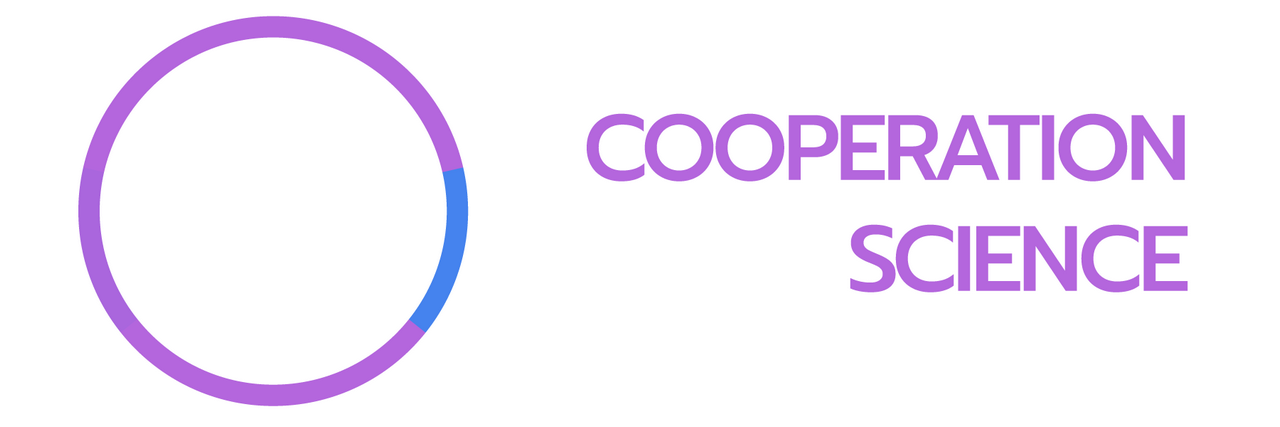
COOPERATION SCIENCE FROM A INTERDISCIPLINARY APPROACH
Humans live in a reality that is mainly observed by the physics
perspective and its subsequent
complex system
approach. Being humans
life forms,
they are observed also by biology through
genetics.
Furthermore, human consciousness allow self-observation within specific
behavioral sciences, psychology, sociology, anthropology and etology. Human cooperation may
show similarities with that of other animals, even if some
eusocial
behaviors may show important differences, like those found in the
primatology
field. As part of current society, they interact at a social level with
economic and
governance
aspects that are also part of scientific investigations and simplified
models like those of
game theory
and
agent-based
modeling. Human languages
semantics
may contain hints of their communication processes, and be a prelude to
the findings about cooperation at a philosophical level. Neuroscience may
help to explain cooperation as an
emergent
complex phenomenon coming out from the interaction of basic
rewards
seeking. From the neuroscience of rewards, necessary to human survival, we
can go back to evolutionary biological behaviors and to physics- and
statistical mechanics-related elimination of local
entropy.
Thus, when observing the human interaction called cooperation we start
from a system approach that is investigated also with the help of all the
above mentioned disciplines.
The Cooperation Science model proposed compares the results of these different disciplines. We are about to release the first edition of this investigation, that specifically combines a general framework with the mentioned semantic, evolutionary biology, game theory, and neuroscience based approaches. We would also like to provide a subsequent economic model for a social system based on cooperation science.